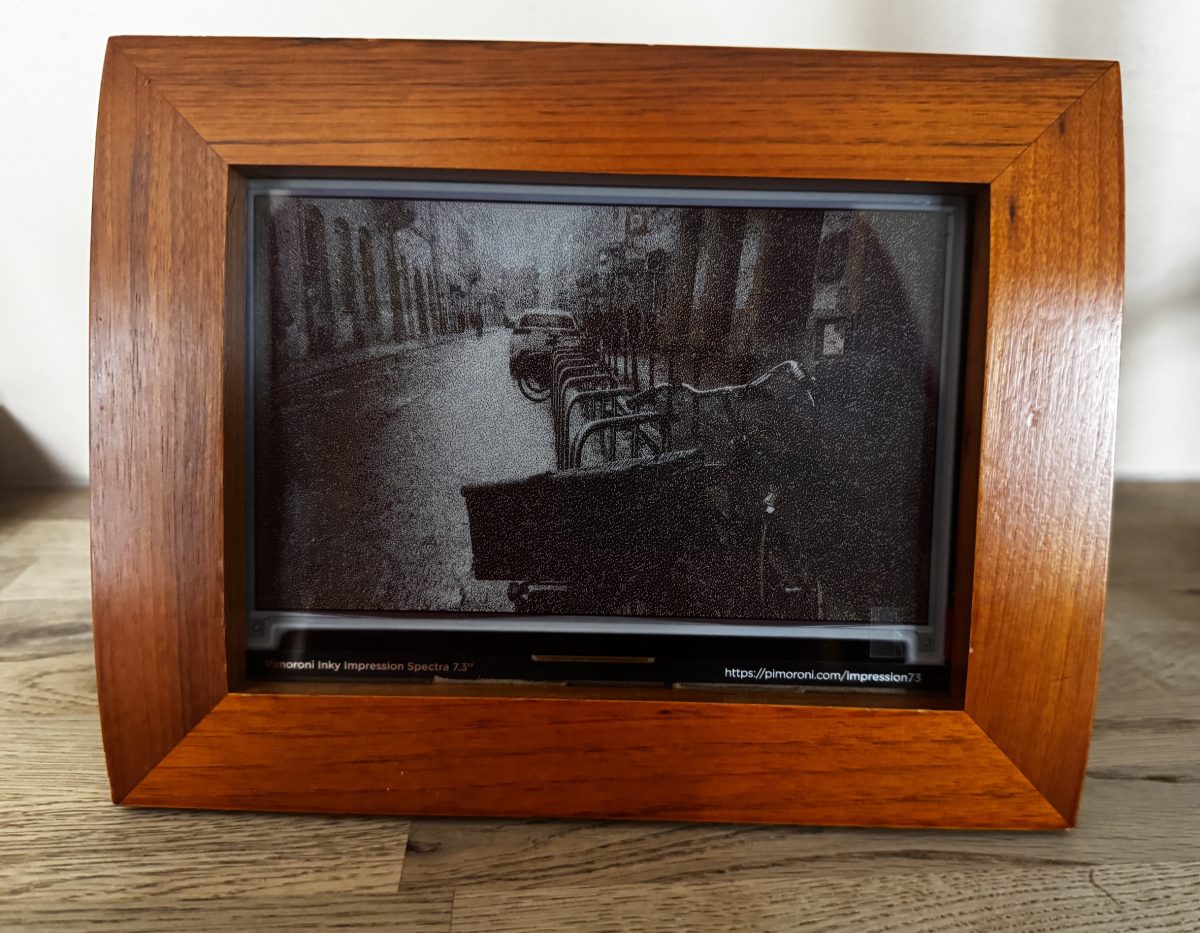I’ve been excited by e-ink displays for a long while. I leapt on the original, gorgeous reMarkable tablet as soon as it came out and have been a regular user and advocate ever since. I would dearly love to have one or two of these enormous 42″ e-ink art poster displays on the wall, but that’s for another day.
I’ve also been a long-time customer of Pimoroni and was aware of their range of nifty Inky displays. I recently came across this neat project by @mimireyburn and managed to pick up a 7.3″ Inky Impression after it being on back-order for only a week or two.
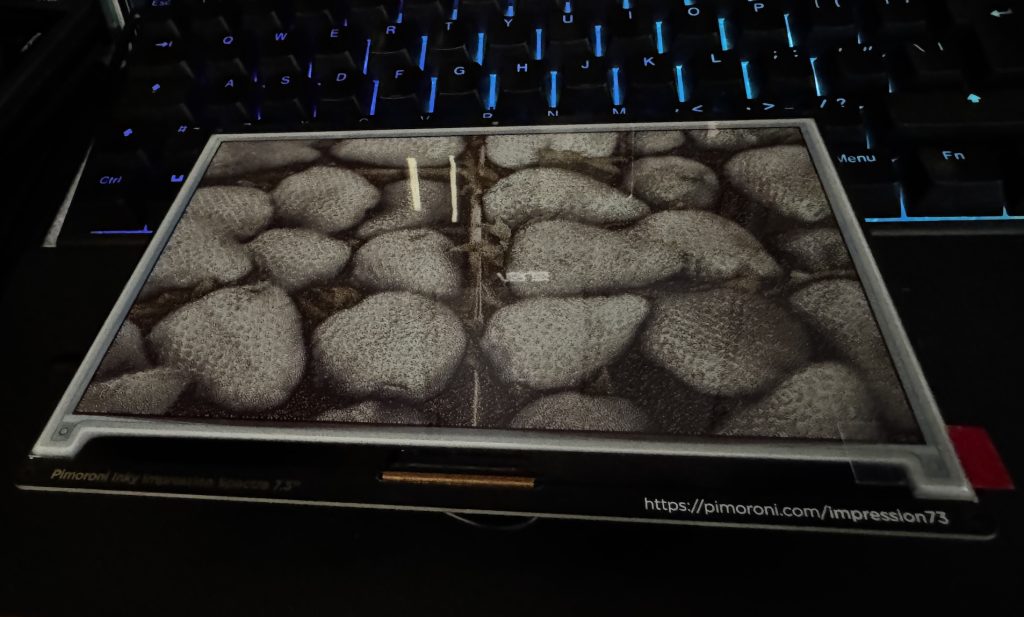
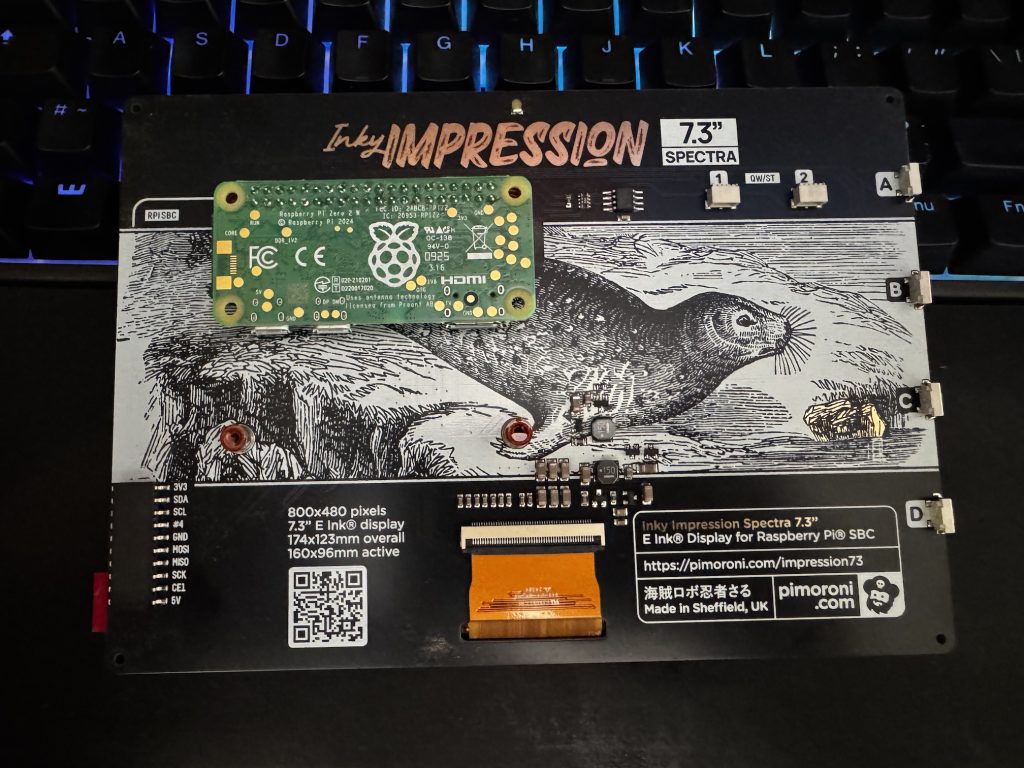
After flashing RPi OS on a clean card for the Pi Zero 2W, downloading the project, setting up Python, compilers, virtualenvs, prerequisites, etc. I was presented with a complete failure of the underlying driver and inky library to communicate with the display. This isn’t a fault of the inky-calendar project at all, may I reiterate, but unfortunately a very regular occurrence I’ve found when using many Pimoroni products.
Searching around I tried a few different things, including the usual modifications to boot parameters to enable the drivers/kernel modules and fiddling with permissions, users etc. but with no success. Now I’ve never deliberately pretended to be a Python programmer, nor do I particularly wish to be one, but I’m pretty good with debugging weird stuff and this was definitely presenting as a driver/library issue. Specifically some of the differences with the Inky Impression 7.3 seemed to be tripping things up, and it wasn’t a hole I fancied spelunking in today.
A little more digging highlighted a NodeJS package by @aeroniemi with working Impression 7.3″ display support. I definitely have masqueraded as a JavaScript programmer in the past so things were looking up. Some light Claude.AI vibing and I had two working scripts – one to fetch images from PicSum and another to replicate the calendar fetching+rendering, both from public iCal and authenticated Google Cal sources – awesome!
Some dremel butchery on the back panel of an old 7″ picture frame to fit around the sticky-out components on the back of the board and I was in business.
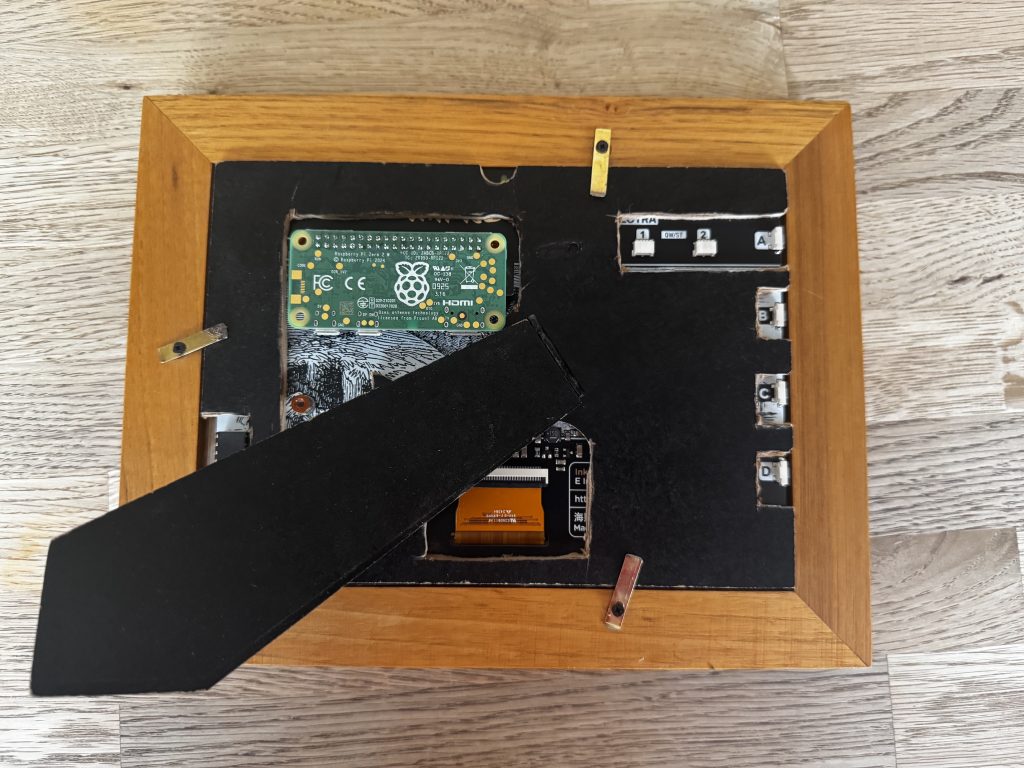
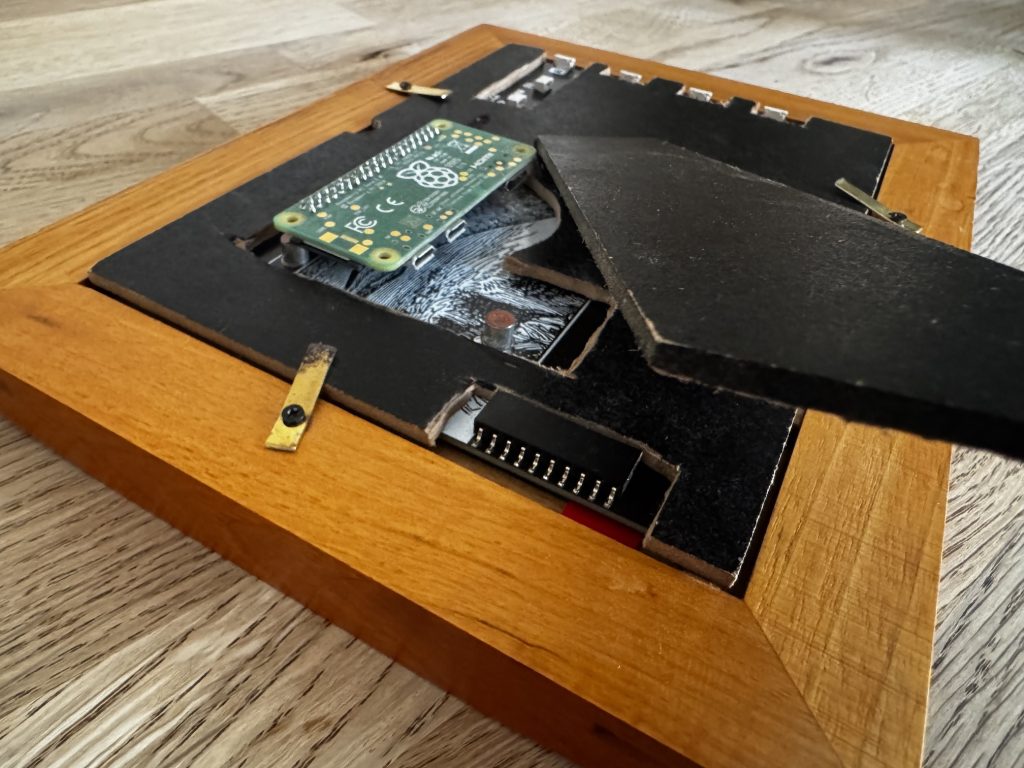
Improvements
The only slight drawback with using this NodeJS library is that it only handles the image-display side of things – there’s no built-in support for the function buttons – something to revisit another day.
Another improvement would be to better-handle power – the main benefit of e-ink is that it doesn’t need power once the display has been set, and that’s not being utilised here at all – there’s a cronjob running on the Pi which displays the calendar before 10:00AM and photos after that, refreshing every half-hour.
*/30 6-10 * * * cd /home/frame/ ; node ical2png.js --calendar x --calendar y --google-calendar z --service-account KEY.json --view week ; node main.js --image calendar.png
*/30 10-23 * * * cd /home/frame/ ; node main.js --ditherLastly, obviously, the display needs to load images from a folder rather than from the internet. That’s super-quick to do, and that’s this afternoon’s job. The calendar-rendering – fonts, sizes, colours etc. could do with a little more spit and polish too.
The code for this project can be found at https://github.com/rmp/inky-frame.
